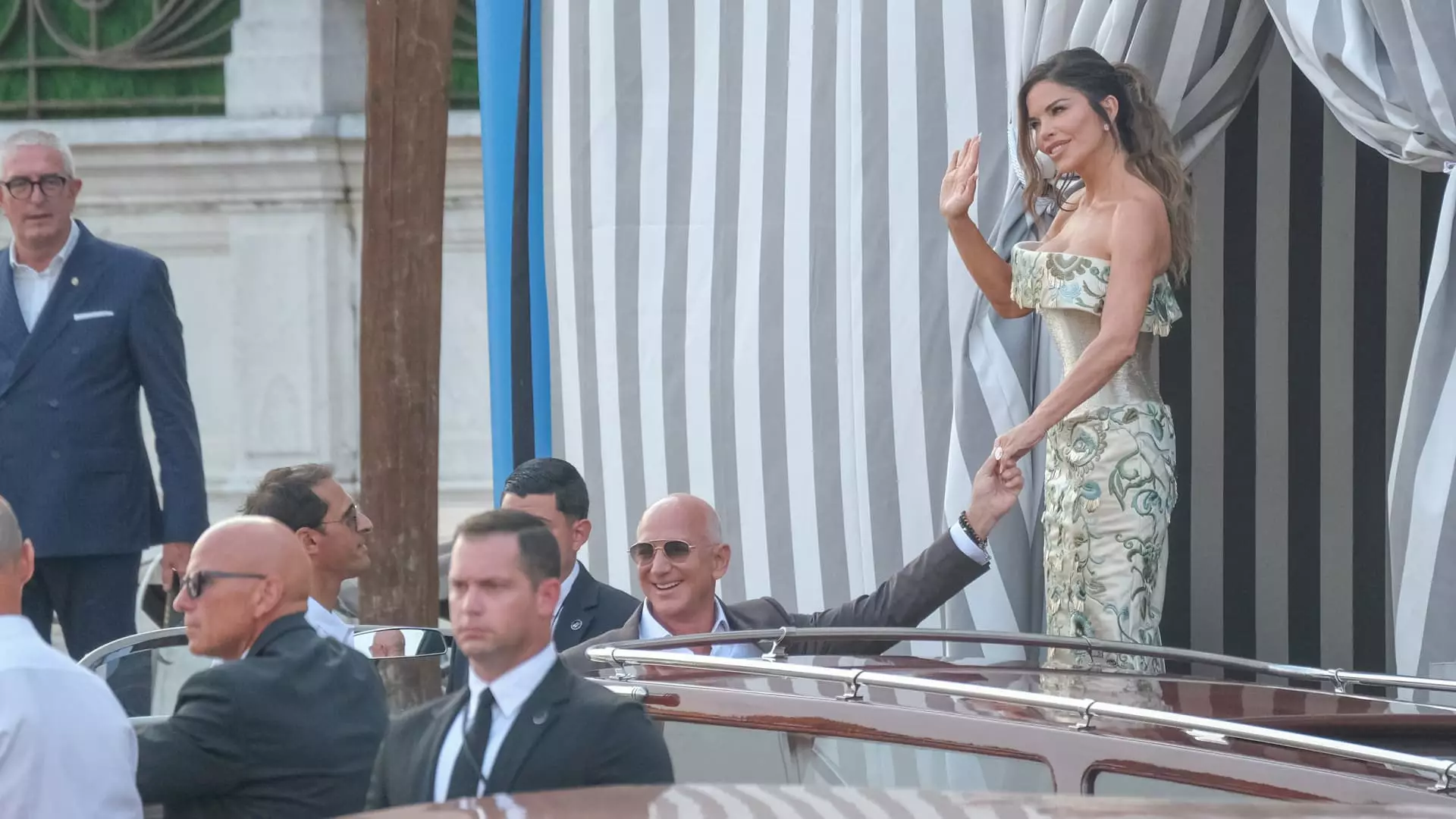Venice, long admired for its fragile beauty and historic charm, recently bore witness to an event that seemed designed as an affront to its very character: the ostentatious wedding of Jeff Bezos and Lauren Sanchez. This was not merely a private affair but a grandiose spectacle involving a glittering guestlist of billionaires, celebrities, and political figures. From Ivanka Trump and Jared Kushner to Bill Gates, Oprah Winfrey, and Leonardo DiCaprio, the presence of so many powerful individuals illuminated the event’s exclusivity—and its detachment from the city’s realities. While the celebration undoubtedly showcased lavish tastes and immense wealth, it also provoked a significant wave of disapproval among the local population and activists alike.
The Unseen Cost Behind the Glamour
The event’s cost is staggering, rumored to be some $50 million, a figure that far exceeds reasonable luxury. The wedding’s three days spanned exclusive venues such as the private island of San Giorgio and the historic Arsenale complex—locations cloaked in both splendor and security measures designed to keep the public at bay. Though Bezos pledged modest charity contributions, including €2 million to support local environmental research, this token gesture feels inconsequential compared to the overwhelming display of opulence. Beyond the event itself, guests arrived by private jets, yachts, and helicopters, further amplifying the event’s environmental footprint.
The local economy undeniably benefits to some extent from such high-spending visitors; five of Venice’s most luxurious hotels were fully booked during the celebrations. However, this one-time influx pales in comparison to the long-term damage to the city’s cultural integrity and its residents’ quality of life.
When a City Becomes a Stage for Extreme Privilege
Venice is a UNESCO World Heritage site, famously vulnerable to environmental challenges and the pressures of excessive tourism. The city has struggled with the consequences of mass tourism for years, culminating in the introduction of a tourist entry fee to protect the delicate ecosystem and support local communities. Yet, luxury events like this wedding exacerbate the problem by turning Venice into a playground for the super-rich, rather than a living city.
There is an acute irony in the fact that while Venice desperately tries to regulate tourism in the public interest, it simultaneously becomes host to private events that dwarf the spending power of average tourists and overshadow local needs. The protests from city residents and environmentalists are not merely about envy or opposition to wealth. They reflect a deeper concern about how unchecked financial power undermines cultural heritage and prioritizes elite consumption over communal well-being.
Reckoning with Excess in the Age of Inequality
From a center-liberal perspective, this event underscores a growing dilemma: how do we balance individual liberty and entrepreneurial success with social responsibility and sustainable community development? Bezos and Sanchez have every right to celebrate their union in style, but there must be limits when that celebration occurs at the expense of entire cities and ecosystems.
Venice is a canary in the coal mine for many global cities facing similar tensions. The rage against overt displays of wealth isn’t purely about economic disparity; it is about fairness, respect for cultural treasures, and shared spaces. With billionaires hosting elaborate events behind locked gates, ordinary citizens are reminded of their exclusion from the places they call home.
This is not a plea for banning wealth or success but a call for responsible stewardship of cultural assets that belong to everyone, not just the ultra-rich. If we fail to critically examine and regulate these excesses, we risk further alienating communities and eroding the very heritage that makes places like Venice irreplaceably unique.


Leave a Reply